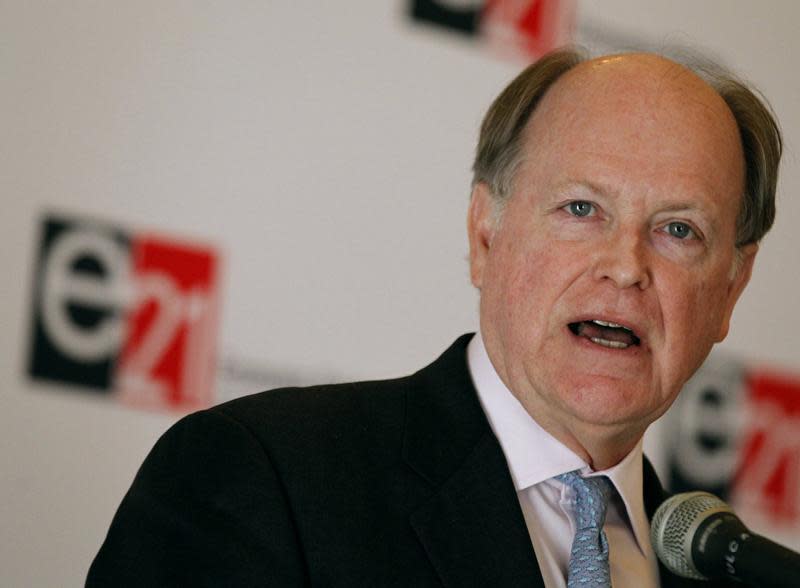Fed's Plosser at odds with policy approach favored by Yellen

PHILADELPHIA (Reuters) - The Great Recession could have done permanent damage to potential U.S. output, a top Federal Reserve official said on Saturday, taking an indirect shot at more cyclical approaches to policy-making that is favored by many economists, including the next Fed chair.
Philadelphia Fed President Charles Plosser said in a speech he is skeptical of so-called "optimal control" approaches to monetary policy in which mathematical models are used to predict when things like unemployment and economic growth will return to more normal levels.
Fed Vice Chair Janet Yellen, who is set to take the reins at the U.S. central bank next month, has often touted this approach, including tolerating higher inflation for a short time in order to speed up the overall economic recovery.
While Yellen is a dovish backer of the Fed's aggressive stimulus, Plosser - who regains a vote on policy this year under the Fed's rotating system - is among the minority of hawks who oppose policies such as large-scale bond-buying.
"Measures that arbitrarily, or by assumption, assign the bulk of fluctuation in GDP to purely temporary factors may provide poor policy guidance when shocks are more permanent in nature," he said in prepared remarks to the Korea-America Economic Association.
To recover from the recession, the U.S. central bank has held interest rates near zero since late 2008 to spur growth and hiring. It has also quadrupled the size of its balance sheet to around $4 trillion through three rounds of bond purchases aimed at holding down longer-term borrowing costs.
While gross domestic product growth rose above 4 percent in the third quarter, it has generally stayed closer to 2 percent since the recession ended in 2009, causing some to think that longer-term potential GDP growth is no longer the 3-percent rate to which Americans are accustomed.
If that is the case, the Fed's ultra easy policy stance - including promises to keep rates near zero for a while in order to drive down joblessness - may be misdirected.
"The shock that hit the economy appears to have had very persistent, if not permanent, effects," Plosser said. "From a statistical perspective, the economy appears to have taken a permanent hit to the output level."
Yellen and current Fed Chairman Ben Bernanke have stressed the economic recovery has a long way to go, and that the Fed is committed to stimulus as long as needed. Yellen, who is expected to win Senate backing for the chairmanship on Monday, first mentioned an optimal control policy path in June, 2012.
Plosser said he is "skeptical" on "optimal control exercises that are derived from specific models" and not on a variety of models.
"A robust, systematic approach to policy, which is transparent and minimizes the degree to which data mismeasurement and model uncertainty affect policy, is the most promising approach to the uncertainties facing policymakers in real time," he said.
(Reporting by Jonathan Spicer; Editing by Dan Grebler)
